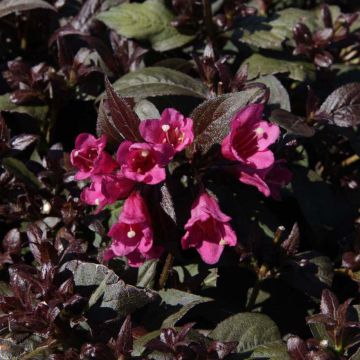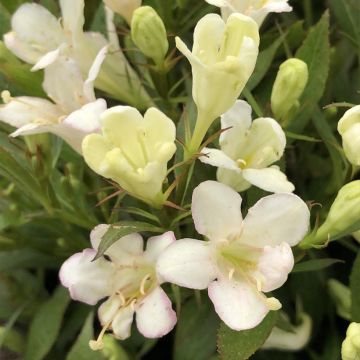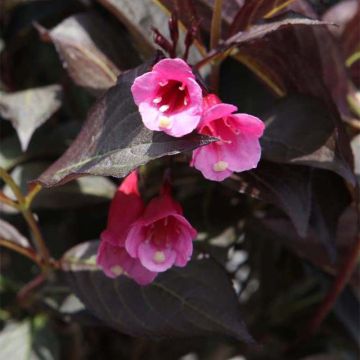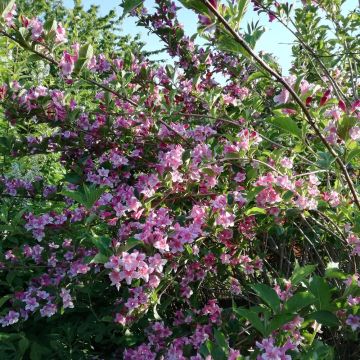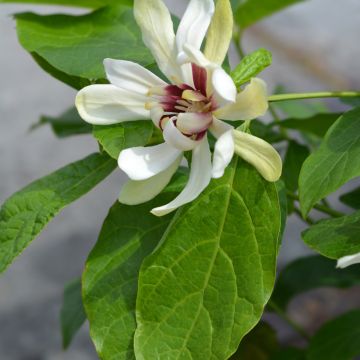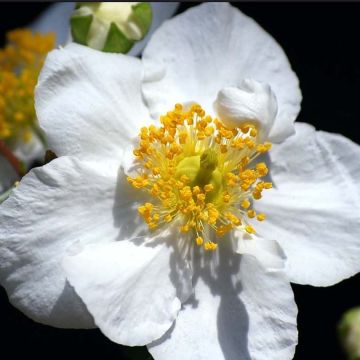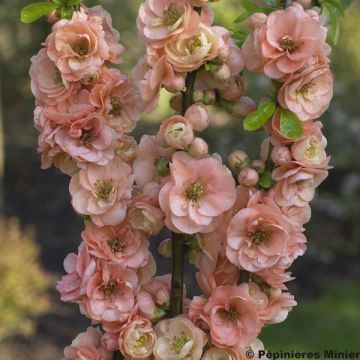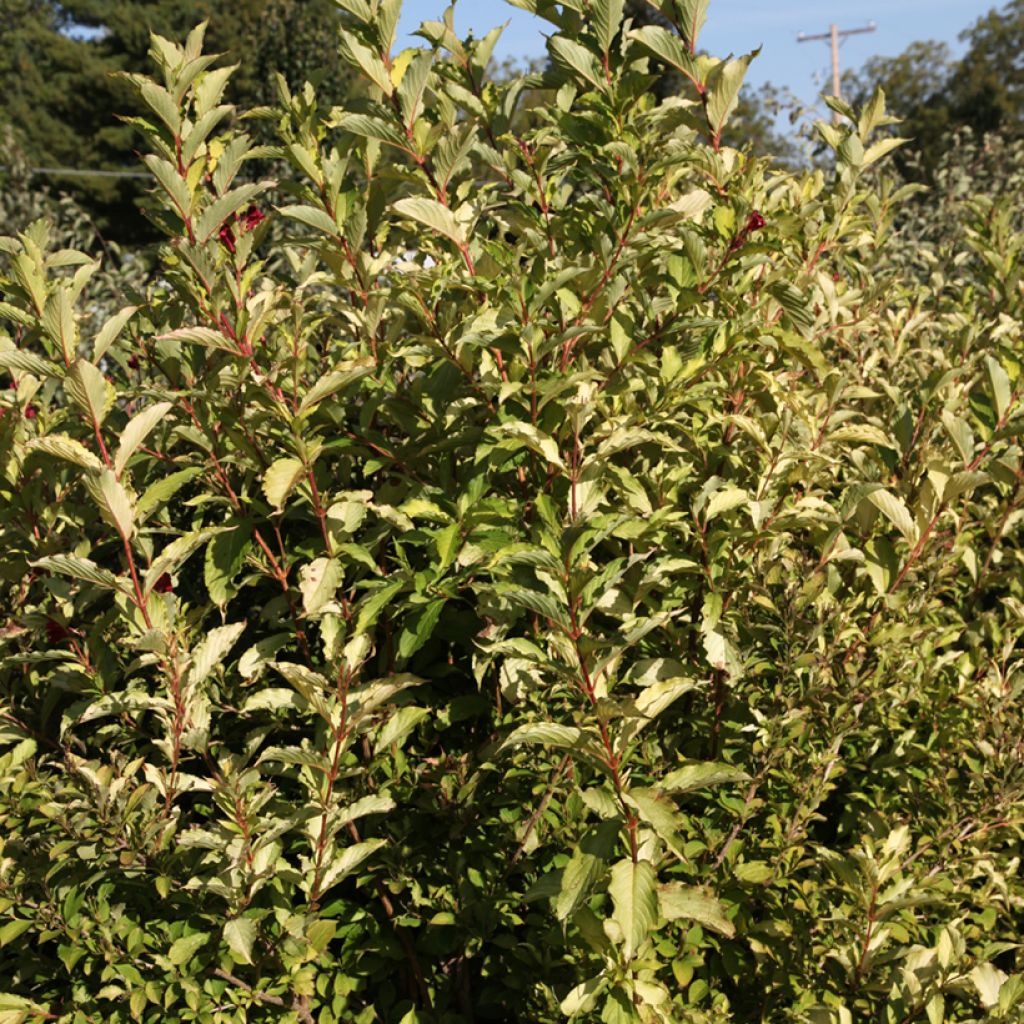

Weigela florida Carlton'
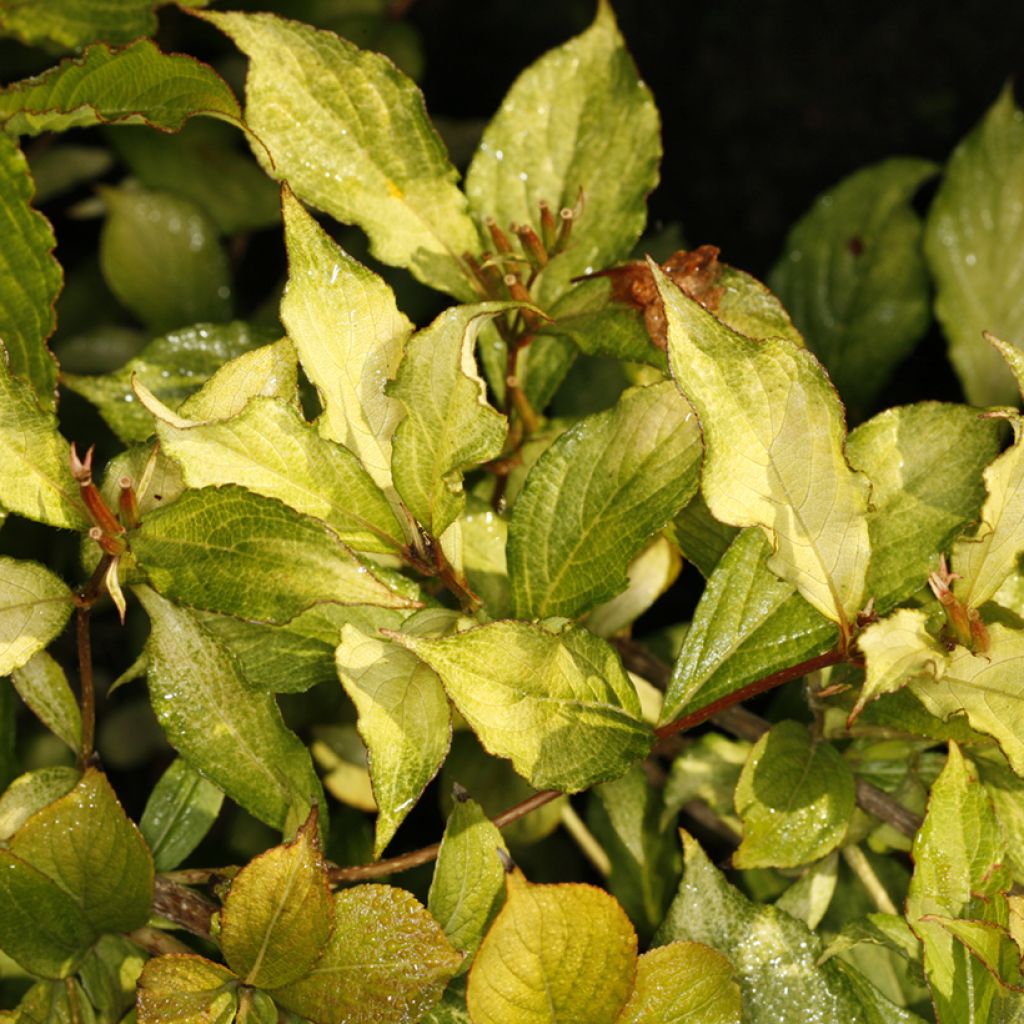

Weigela florida Carlton'
Weigela florida Carlton'
Weigela florida Sonic Bloom® Ghost® 'Carlton'
Weigela, Old Fashioned Weigela, Weigela Bush
Special offer!
Receive a €20 voucher for any order over €90 (excluding delivery costs, credit notes, and plastic-free options)!
1- Add your favorite plants to your cart.
2- Once you have reached €90, confirm your order (you can even choose the delivery date!).
3- As soon as your order is shipped, you will receive an email containing your voucher code, valid for 3 months (90 days).
Your voucher is unique and can only be used once, for any order with a minimum value of €20, excluding delivery costs.
Can be combined with other current offers, non-divisible and non-refundable.
Why not try an alternative variety in stock?
View all →This plant carries a 24 months recovery warranty
More information
We guarantee the quality of our plants for a full growing cycle, and will replace at our expense any plant that fails to recover under normal climatic and planting conditions.
Would this plant suit my garden?
Set up your Plantfit profile →
Description
Weigela florida Carlton, also known as Weigela 'Ghost', is a shrub appreciated for its particularly generous colourful flowering and its changing foliage colour. It is a particularly decorative variety both in a shrub bed and in a small flowering hedge. Its flowering attracts many pollinators and it is easy to maintain.
The Weigela (or Weigelia) genus comprises about a dozen species of deciduous shrubs, with a spreading or upright habit, growing in thickets and on the edge of forests in eastern Asia. It belongs to the Caprifoliaceae family, like Abelia, Heptacodium, Leycesteria, Lonicera, or Symphoricarpos. The name Weigela comes from Weigel, with the suffix -a or -ia, created in memory of the German professor and botanist Christian Ehrenfield von Weigel (1748-1831).
Weigela florida Carlton is a variety developed by the breeder Carlton that combines unique foliage with perpetual flowering. This bush with a rounded and bushy habit reaches a height of 1.2 to 1.8 m and a width of 90 cm to 1.2 m. Its pinkish-red bell-shaped flowers appear in clusters in May-June, and then more sporadically until autumn if the soil does not dry out too much. The foliage changes from yellowish-green in spring to buttery yellow in summer, then becomes very pale, almost white in autumn before falling. The leaves are elliptical, and the branches of this bush are covered with smooth, greyish bark.
Weigela 'Carlton' is a vigorous and hardy bush, resistant to temperatures down to -30°C. It thrives in ordinary soil, moist, and well-drained. This variety can be used in a mixed hedge or at the back of perennial beds. In a small garden, this bush can also be planted in the centre of a flower bed. Among possible associations are Buddleja davidii 'Argus White' (white butterfly bush), all white-flowering spireas, mock oranges, and many other hedge shrubs.
Report an error about the product description
Weigela florida Carlton' in pictures


Plant habit
Flowering
Foliage
Botanical data
Weigela
florida
Sonic Bloom® Ghost® 'Carlton'
Caprifoliaceae
Weigela, Old Fashioned Weigela, Weigela Bush
Weigélia 'Carlton', Weigélia Sonic Bloom Ghost
Cultivar or hybrid
Other Weigela
View all →Planting and care
Weigela florida Carlton or 'Ghost' thrives in sunny or lightly shaded locations. Plant it in ordinary, moist, well-drained soil, preferably in autumn so that it can establish its roots before summer, or alternatively in early spring. This bush is very adaptable and can tolerate slightly acidic, neutral, or even slightly alkaline soil pH levels. Dig a hole that is 50 cm in all directions, add some planting compost and mix it with the existing soil. Soak the root ball of your Weigela in a bucket for fifteen minutes before planting it in the hole. Fill in the hole and water generously. Water regularly during the first year, and then during hot and dry periods in the following years.
Planting period
Intended location
Care
This item has not been reviewed yet - be the first to leave a review about it.
Similar products
Haven't found what you were looking for?
Hardiness is the lowest winter temperature a plant can endure without suffering serious damage or even dying. However, hardiness is affected by location (a sheltered area, such as a patio), protection (winter cover) and soil type (hardiness is improved by well-drained soil).

Photo Sharing Terms & Conditions
In order to encourage gardeners to interact and share their experiences, Promesse de fleurs offers various media enabling content to be uploaded onto its Site - in particular via the ‘Photo sharing’ module.
The User agrees to refrain from:
- Posting any content that is illegal, prejudicial, insulting, racist, inciteful to hatred, revisionist, contrary to public decency, that infringes on privacy or on the privacy rights of third parties, in particular the publicity rights of persons and goods, intellectual property rights, or the right to privacy.
- Submitting content on behalf of a third party;
- Impersonate the identity of a third party and/or publish any personal information about a third party;
In general, the User undertakes to refrain from any unethical behaviour.
All Content (in particular text, comments, files, images, photos, videos, creative works, etc.), which may be subject to property or intellectual property rights, image or other private rights, shall remain the property of the User, subject to the limited rights granted by the terms of the licence granted by Promesse de fleurs as stated below. Users are at liberty to publish or not to publish such Content on the Site, notably via the ‘Photo Sharing’ facility, and accept that this Content shall be made public and freely accessible, notably on the Internet.
Users further acknowledge, undertake to have ,and guarantee that they hold all necessary rights and permissions to publish such material on the Site, in particular with regard to the legislation in force pertaining to any privacy, property, intellectual property, image, or contractual rights, or rights of any other nature. By publishing such Content on the Site, Users acknowledge accepting full liability as publishers of the Content within the meaning of the law, and grant Promesse de fleurs, free of charge, an inclusive, worldwide licence for the said Content for the entire duration of its publication, including all reproduction, representation, up/downloading, displaying, performing, transmission, and storage rights.
Users also grant permission for their name to be linked to the Content and accept that this link may not always be made available.
By engaging in posting material, Users consent to their Content becoming automatically accessible on the Internet, in particular on other sites and/or blogs and/or web pages of the Promesse de fleurs site, including in particular social pages and the Promesse de fleurs catalogue.
Users may secure the removal of entrusted content free of charge by issuing a simple request via our contact form.
The flowering period indicated on our website applies to countries and regions located in USDA zone 8 (France, the United Kingdom, Ireland, the Netherlands, etc.)
It will vary according to where you live:
- In zones 9 to 10 (Italy, Spain, Greece, etc.), flowering will occur about 2 to 4 weeks earlier.
- In zones 6 to 7 (Germany, Poland, Slovenia, and lower mountainous regions), flowering will be delayed by 2 to 3 weeks.
- In zone 5 (Central Europe, Scandinavia), blooming will be delayed by 3 to 5 weeks.
In temperate climates, pruning of spring-flowering shrubs (forsythia, spireas, etc.) should be done just after flowering.
Pruning of summer-flowering shrubs (Indian Lilac, Perovskia, etc.) can be done in winter or spring.
In cold regions as well as with frost-sensitive plants, avoid pruning too early when severe frosts may still occur.
The planting period indicated on our website applies to countries and regions located in USDA zone 8 (France, United Kingdom, Ireland, Netherlands).
It will vary according to where you live:
- In Mediterranean zones (Marseille, Madrid, Milan, etc.), autumn and winter are the best planting periods.
- In continental zones (Strasbourg, Munich, Vienna, etc.), delay planting by 2 to 3 weeks in spring and bring it forward by 2 to 4 weeks in autumn.
- In mountainous regions (the Alps, Pyrenees, Carpathians, etc.), it is best to plant in late spring (May-June) or late summer (August-September).
The harvesting period indicated on our website applies to countries and regions in USDA zone 8 (France, England, Ireland, the Netherlands).
In colder areas (Scandinavia, Poland, Austria...) fruit and vegetable harvests are likely to be delayed by 3-4 weeks.
In warmer areas (Italy, Spain, Greece, etc.), harvesting will probably take place earlier, depending on weather conditions.
The sowing periods indicated on our website apply to countries and regions within USDA Zone 8 (France, UK, Ireland, Netherlands).
In colder areas (Scandinavia, Poland, Austria...), delay any outdoor sowing by 3-4 weeks, or sow under glass.
In warmer climes (Italy, Spain, Greece, etc.), bring outdoor sowing forward by a few weeks.

































